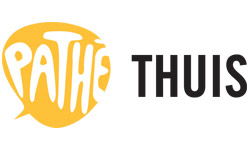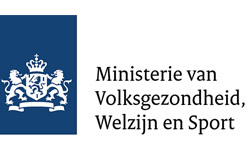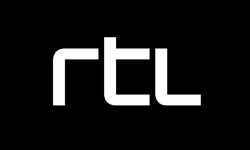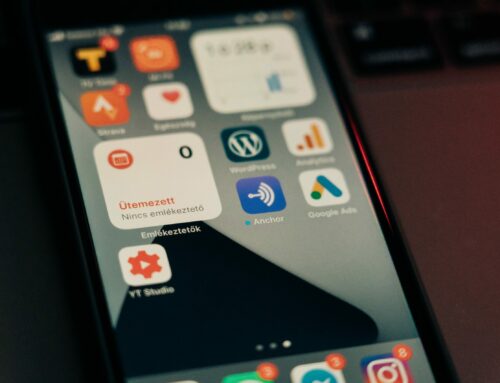Reading Time: 7 minutes
For the majority of my career I’ve been working remote part-time. It was always considered a special treatment, and with most employers it took a lot of effort to earn. Quite honestly, most of the time it didn’t work out so well either. Here are some of the things I ran into over the past years, and how we try to overcome these at Egeniq.
Communication
Remote workers miss way more communication than others. If a meeting is held in the office, there’s a pretty big chance you’ll be left out as a remote worker. That may not bother you initially, because you hate meetings, but eventually it results in your input and ideas being left out.
If part of your team is remote, get them involved in meetings. Have a room with a teleconference microphone and dial in your remote workers. Bonus points for having a TV and a webcam setup in the meeting room, as those will make the remote workers feel as a real part of the team.

Document your meetings. This applies if you don’t have a remote team as well, but it’s extra important when you do. A meeting didn’t take place if it’s not documented.
Trust
You may be working hard to reach your sprint goals, but just like people working in the office you’ll have less productive days as well. It may be hard for your manager or even your teammates to trust you, because they can’t physically see you.
Trust goes both ways. If you’re an employer and want to gain trust from your employees. A first step is to be transparent and honest. Whether it’s good or bad, be open and supportive in your communication and provide as much feedback as possible. In return as an employee to gain trust, try to deliver on your promises. If for some reason you can’t deliver on what you’ve promised, be open about it, own up to your mistakes and learn from them.
Team building or camaraderie
It’s tricky when you’re remote. When you’re working from an office you spend most of the time working side by side, eat lunch together, and have an occasional beer after work time.
![]()
For a distributed team, that’s not necessarily the case. Encourage your distributed team to bond. For example, at Egeniq we have a #random room in Slack just for sharing and talking about anything that comes to mind. Every two weeks we’ll meet up in a co-working space so people get a chance to talk to each other in person. People that live near each other are encouraged to work together in a shared office when they have the need for it.
Jealousy
Office workers that don’t have the availability to work from home may get jealous. They may think you are getting more trust and flexibility than they are, or they might even judge you for it. In their eyes when you’re working from home you’re laying by the pool drinking cocktails, and are not watching cat videos on YouTube like them at the office (…err, writing code).
There is not much you can do about this as a remote worker. It’s in the nature of human beings. As an employer make sure you grant these privileges to your entire team, or make sure you explain early in the hiring process why remote work is not suitable for the given role. For example, at Egeniq most of us applied to work remotely, but we do have some specific roles that will require you to work on site at a customer’s location.
Recognize that sometimes it’s fruitful to work on something together in the same location and to share knowledge. We do this in our office or a suitable central location, or at our client’s offices. The key is to do it when it makes sense, instead of making it the default. Strive to create the ideal mix of working remotely and working on site.
Distractions
Are you working in an office and hate it whenever someone drives by your desk to talk to you about anything while you’re trying to focus? Or perhaps you’re working in an open office space and some of your coworkers are discussing their weekend plans right in front of your desk? These are some of the common distractions that people working in an office have. For a remote worker there are all kinds of different distractions peeking around the corner.

Whenever I tell people about how our team is working remote, they think we all wake up late, work in our pyjamas, and pretty much do whatever we want. That may be partially true, but it also means it takes responsibility and dedication to set those distractions aside or to make up for the lost time at a later time. For example, when I’m not feeling focussed I might go for a walk, do some household chores or play with the kids, and I’ll compensate for that lost time at a later time when I feel more focussed.
Equipment and services
Who pays for what? It depends, and I’ve had options from using entirely my own equipment, up to Egeniq that provides all necessary office equipment. The latter is most likely to increase morale, and will put your team on equal foot. It can also provide health benefits to your employees.
For instance, I’ve been dealing with some back problems, and when I told my employer about it, they offered to buy me a better chair and a standing desk. Ever since I have those installed my situation has improved.

Scheduling
Try balancing some overlap with coworkers while enabling your employees to work flexible hours to get stuff done.
I once had a coworker that had his most productive time at night. So whenever I was working he would be sleeping and visa versa. As a result we had zero overlap and all communication became asynchronous. This wasn’t ideal because quite often that meant we’d be waiting on each other, and stuff would take longer than it needed to.
Try scheduling for at least a couple hours of overlap during the day.
Your personality type
When I started working remote full-time it was not like anything that I had expected. Remote work can be a lonely endeavour, and can have an effect on your physical and or mental health. That’s why it is important for remote workers to stay active and healthy.
Since I started working remote I’ve been hitting the gym twice a week, it helps me to stay physically fit and allows me to clear my mind. Usually I’ll pick up the kids early from school too, as that gives me some much needed distraction after a long day.

Either way, it took me quite a while to find a good balance, and I suggest you experiment with whatever works for you to stay both mentally and physically fit.
Social security laws
Where should you and your employer pay taxes when you’re working for an abroad company? In Belgium there is a law that states that if you work from your home country for at least 1/5th of your time, you are subject to the Belgian social security system.
I’m grateful my employer worked with me to get this setup, it was quite some paperwork to go through. A first step is to request an A1 form. This form is issued by the social security institution that your employer is registered with in your home country. Its purpose is to give you a statement of applicable legislation, which is useful to prove that you pay social contributions in another EU country — if you are a posted worker or work in several countries at the same time.

In my case this also meant that my employer had to setup a Belgian payroll so he could contribute to the Belgian social security system for my earnings in Belgium. Belgium’s tax rate is higher than the Netherlands, so it impacted my net salary in a negative way, but my employer made sure to compensate for that.
This all came as a surprise to me and my employer, and I suggest that you check with your local authorities as the rules might be different for your situation.
Slack becomes an all-day, every-day meeting place if you’re not careful
Just like office drive-by meetings, Slack can be disturbing as well. If your Slack is anything like ours, there will be countless discussions going on throughout the day. Allow yourself to mute from those, and from time to time even completely turn it off. Because no matter how good you are at multitasking, that notification badge is likely to suck you into discussions you don’t necessarily need to be part of.
Check out this article from Jason Fried on the pros and cons about group chat, it has some good tips.











